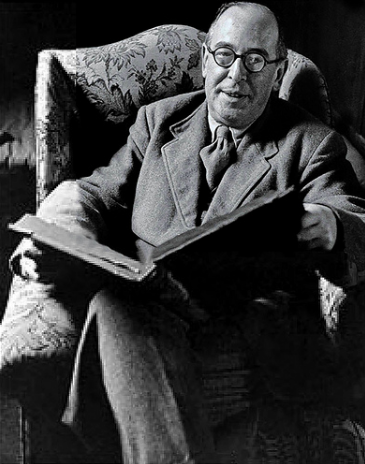“Though I had never written anything more easily, I never wrote with less enjoyment,” beloved author C.S. Lewis (1898-1963) said of The Screwtape Letters (1942), his satirical novel featuring Screwtape, a senior demon of the “Lowerarchy”, who writes 31 letters to his novice nephew with advice on how to win the soul of a young man and keep him from “the Enemy” (i.e. God).
While it has entertained and enlightened readers for over 70 years – it’s Lewis’ most popular non-Narnia novel – playing the devil, it turns out, was not particularly enjoyable.
“The ease came, no doubt, from the fact that the device of diabolical letters, once you have thought of it, exploits itself spontaneously,” Lewis explains. “…[b]ut though it was easy to twist one’s mind into the diabolical attitude, it was not fun, or not for long.”
Knowing this – that it was a work produced devoid of joy – seems fitting for a book that makes the devil – the ultimate joy sapper – its main character.
But, it also makes its brilliance, and humor, even more impressive. Indeed, there’s a reason the Letters remain so poplar: it underscores with a clever wit and astute wisdom the temptations and weaknesses we all experience as human beings.
In fact, through the wiles of Screwtape, and bearing in mind that the goal of the Lowerarchy (even in hell, there’s a hierarchy!) is the “anguish and bewilderment of a human soul”, we can learn several essential truths about ourselves – and God.

1. We are spiritual beings in human flesh:
Screwtape writes: “Humans are amphibians – half spirit and half animal…As spirits they belong to the eternal world, but as animals they inhabit time. This means that while their spirit can be directed to an eternal object, their bodies, passions, and imaginations are in continual change, for to be in time means to change. Their nearest approach to constancy, therefore, is undulation – the repeated return to a level from which they repeatedly fall back, a series of troughs and peaks.”
2. God really does love us, and uses our pain and suffering to bring us closer to Himself:
Screwtape writes: “Now it may surprise you to learn that in His [God’s] efforts to get permanent possession of a soul, He relies on the troughs even more than on the peaks; some of His special favourites have gone through longer and deeper troughs than anyone else. The reason is this. To us a human is primarily food; our aim is the absorption of its will into ours, the increase of our own area of selfhood at its expense. But the obedience which the Enemy demands of men is quite a different thing. One must face the fact that all the talk about His love for men, and His service being perfect freedom, is not (as one would gladly believe) mere propaganda, but an appalling truth. He really does want to fill the universe with a lot of loathsome little replicas of Himself – creatures whose life, on its miniature scale, will be qualitatively like His own, not because He has absorbed them but because their wills freely conform to His. We want cattle who can finally become food; He wants servants who can finally become sons. We want to suck in, He wants to give out. We are empty and would be filled; He is full and flows over.”

3. We are called to live by faith, not by our feelings:
Screwtape writes: “Whenever they [humans] are attending to the Enemy Himself [God] we are defeated, but there are ways of preventing them from doing so. The simplest is to turn their gaze away from Him towards themselves. Keep them watching their own minds and trying to produce feelings there by the action of their own wills. When they meant to ask Him for charity, let them, instead, start trying to manufacture charitable feelings for themselves and not notice that this is what they are doing. When they meant to pray for courage, let them really be trying to feel brave. When they say they are praying for forgiveness,let them be trying to feel forgiven. Teach them to estimate the value of each prayer by their success in producing the desired feeling; and never let them suspect how much success or failure of that kind depends on whether they are well or ill, fresh or tired, at the moment.”
4. Fear is a liar:
Screwtape writes: “We want him to be in the maximum uncertainty, so that his mind will be filled with contradictory pictures of the future, every one of which arouses hope or fear. There is nothing like suspense and anxiety for barricading a human’s mind against the Enemy [God]. He wants men to be concerned with what they do; our business is to keep them thinking about what will happen to them.”
5. God is the source of all good:
Screwtape writes: “You are much more likely to make your man a sound drunkard by pressing drink on him as an anodyne when he is dull and weary than by encouraging him to use it as a means of merriment among his friends when he is happy and expansive. Never forget that when we are dealing with any pleasure in its healthy and normal and satisfying form, we are, in a sense, on the Enemy’s ground. I know we have won many a soul through pleasure. All the same, it is His invention, not ours. He made the pleasures: all our research so far has not enabled us to produce one.All we can do is to encourage the humans to take the pleasures which our Enemy has produced, at times, or in ways, or in degrees, which He has forbidden.”
6. We cannot rightly claim anything as our own:
Screwtape writes: “Men are not angered by mere misfortune but by misfortune conceived as injury. And the sense of injury depends on the feeling that a legitimate claim has been denied. The more claims on life, therefore, that your patient can be induced to make, the more often he will feel injured and, as a result, ill-tempered…[y]ou must therefore zealously guard in his mind the curious assumption ‘My time is my own.’ Let him have the feeling that he starts each day as the lawful possessor of twenty-four hours.”

7. Humbling ourselves leads to greater love – for ourselves, and others:
Screwtape writes: “To anticipate the Enemy’s [God’s] strategy, we must consider His aims. The Enemy wants to bring the man to a state of mind in which he could design the best cathedral in the world, and know it to be the best, and rejoice in the fact, without being any more (or less) or otherwise glad at having done it than he would be if it had been done by another….He wants to kill their animal self-love as soon as possible; but it is His long-term policy, I fear, to restore to them a new kind of self-love – a charity and gratitude for all selves, including their own; when they have really learned to love their neighbors as themselves, they will be allowed to love themselves as their neighbors. For we must never forget what is the most repellent and inexplicable trait in our Enemy; He really loves the hairless bpeds He has created and always gives back to them with His right hand what He has taken away with His left.”
8. We are called to live in the present with an eye toward eternity:
Screwtape writes: “The humans live in time but our Enemy [God] destines them to eternity…[h]e would therefore have them continually concerned either with eternity (which means being concerned with Him) or the Present – either meditating on their eternal union with, or separation from, Himself, or else obeying the present voice of conscience, bearing the present cross, receiving the present grace, giving thanks for the present pleasure.”
[…]
“But we want a man hag-ridden by the Future – haunted by visions of an imminent heaven or hell upon earth – ready to break the Enemy’s commands in the present if by so doing we make him think he can attain the one or avert the other – dependent for his faith on the success or failure of schemes whose end he will not live to see.”
9. Faith is not a means to an end, but an end in and of itself:
Screwtape writes: “Once you have made the World an end, and faith a means, you have almost won your man, and it makes very little difference what kind of worldly end he is pursuing. Provided that meetings, pamphlets, policies, movements, causes, and crusades, matter more to him than prayers and sacraments and charity, he is ours – and the more ‘religious’ (on those terms) the more securely ours.”

10. The Devil is subtle and cunning:
“Our policy, for the moment, is to conceal ourselves…I do not think you will have much difficulty in keeping the patient in the dark. The fact that ‘devils’ are predominately comic figures in the modern imagination will help you. If any faint suspicion of your existence begins to arise in his mind, suggest to him a picture of something in red tights, and persuade him that since he cannot believe in that (it is an old textbook method of confusing them) he therefore cannot believe in you.”
The Screwtape Letters is a truly brilliant read in its entirety, a clever account of the weaknesses of human nature and subtlety of sin and temptation. Continuously in print since its publication in 1942, the novel has been adapted into plays, made into a comic book, and recorded as an audio drama by John Cleese.
Wildly funny and deadly serious at the same time, its relevance withstands the test of time.
Similar posts:
- Flannery O’Connor: Wrestling with Ambition and Humility
- Be Still: The Desert Fathers on the Value of Solitude
- The Dalai Lama and Archbishop Desmond Tutu on the Four Qualities of the Mind that Lead to Joyful Living
- Claiming Responsibility for Our Lives: Thomas Merton on Discovering Meaning and Purpose Within
- Yielding Control: Irenaeus of Lyon on What it Means to be a Created Being



Please send your catalogue .
Thanks
AJC
Inspiration upon inspiration, truth upon truth, warning upon warning, and a very foundation of love
That photo is not of a Saten sculpture. It’s of Mr. Tumnus from the Lion the Witch and the Wardrobe.
Thank you for the correction!